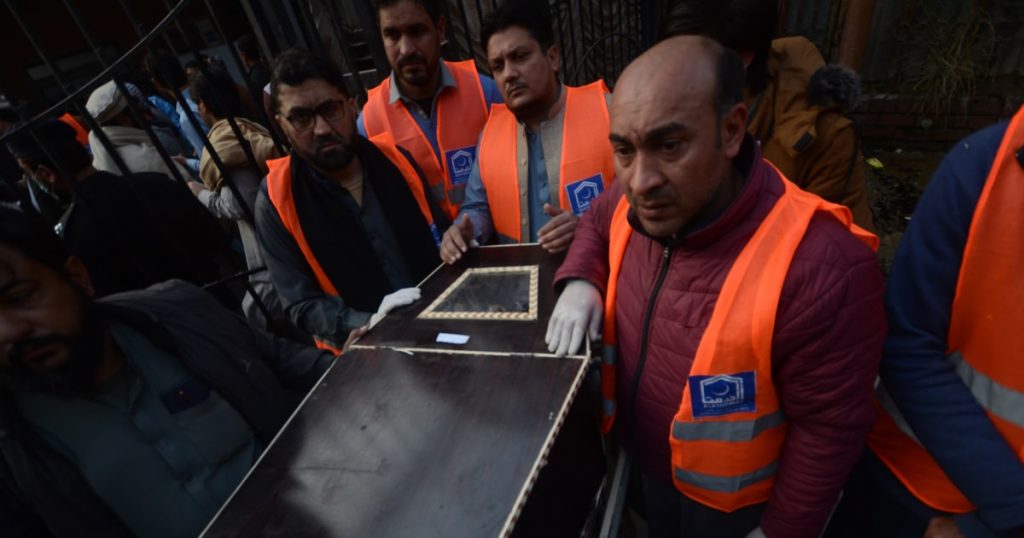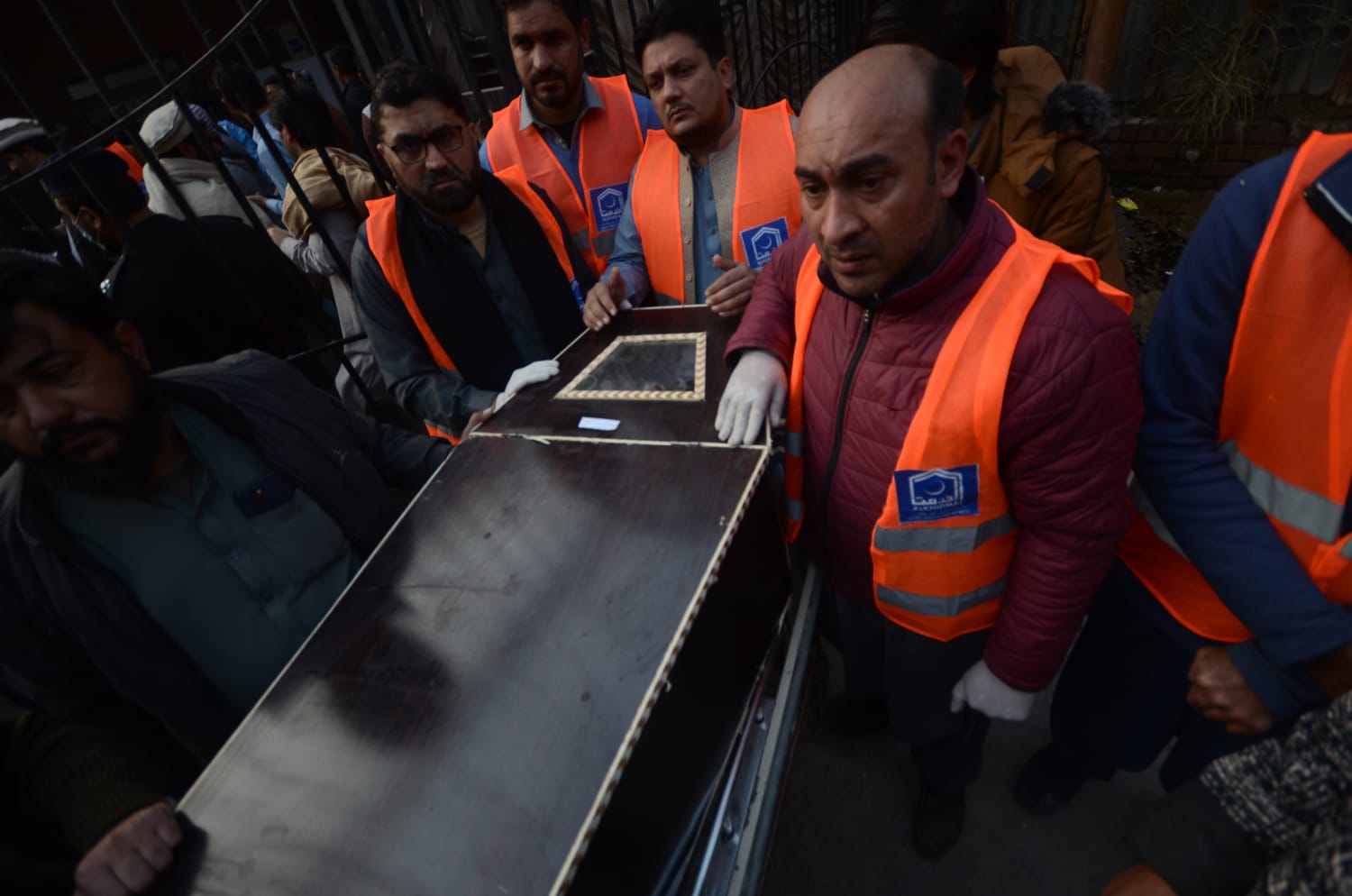

PESHAWAR, Pakistan — The death toll from a suicide bombing at a mosque in northwest Pakistan has risen to 90, a local official said Tuesday, a day after one of the worst attacks in months in the cash-strapped South Asian nation.
Shafiullah Khan, deputy commissioner of the city of Peshawar, where the bombing took place on Monday, said 177 other people, most of them police officers, had been injured and that 57 of them were still hospitalized, some in critical condition.
Officials said the bomber was standing in the first row of the crowded mosque when he set off his explosive vest during afternoon prayer, causing the roof to cave in. The death toll may rise as bodies continue to be recovered from the rubble of the mosque, which is inside a walled compound containing the police headquarters.
About 300 worshippers were in the mosque at the time of the blast, said Ijaz Khan, the Peshawar police chief.
“A portion of the building collapsed and some of the people are alive but stranded there,” he said Monday. “Our teams are engaged in cutting the steel to recover them.”
It was unclear how the bomber was able to get past security at the compound, as well as in a larger high-security zone that surrounds it. Khan said officials had confirmed that the bomber was not a member of the police force.
Sarbakaf Mohmand, a commander of the Pakistani Taliban, also known as Tehreek-e-Taliban Pakistan or TTP, claimed responsibility for the attack on Twitter. But spokesperson Mohammad Khurasani later denied the group was involved.
“As per our principles, carrying out attacks in mosques, seminaries and other holy places cannot be defended and the perpetrators are liable to be punished,” he said in a statement. He did not address the TTP commander’s earlier claim of responsibility.
The Pakistani Taliban, which are separate from but closely allied with the Afghan Taliban, have waged an insurgency in Pakistan for the past 15 years. They are especially active in Khyber Pakhtunkhwa, a province bordering Afghanistan where Peshawar is the capital.
Militant attacks in Pakistan, particularly on security forces and police, have increased since November, when the Pakistani Taliban ended a monthslong cease-fire with the government.
The bombing at the mosque in Peshawar has been widely condemned both in Pakistan and internationally.
“The sheer scale of the human tragedy is unimaginable,” Prime Minister Shehbaz Sharif said on Twitter. “This is no less than an attack on Pakistan.”
The mosque attack is at least the third disaster in Pakistan since Sunday. A bus crash killed more than 40 people in the southern province of Baluchistan and 30 students were killed when their boat capsized on a lake in Khyber Pakhtunkhwa province.
The Khyber Pakhtunkhwa government declared Tuesday a day of mourning for those killed in the mosque attack and the boat accident.
Tuesday also brings the start of talks in Islamabad, the capital, between government officials and the International Monetary Fund on reviving a $1.1 billion loan program. Pakistan, a heavily indebted country of more than 230 million people, is facing an economic crisis worsened by catastrophic floods last summer, with its currency, the rupee, falling perilously low.
Last week, a breakdown in the power grid left much of the country without electricity for the better part of a day during the coldest time of year. Officials said they would upgrade the network to reduce the number of blackouts, which happen regularly.
 Latest Breaking News Online News Portal
Latest Breaking News Online News Portal





